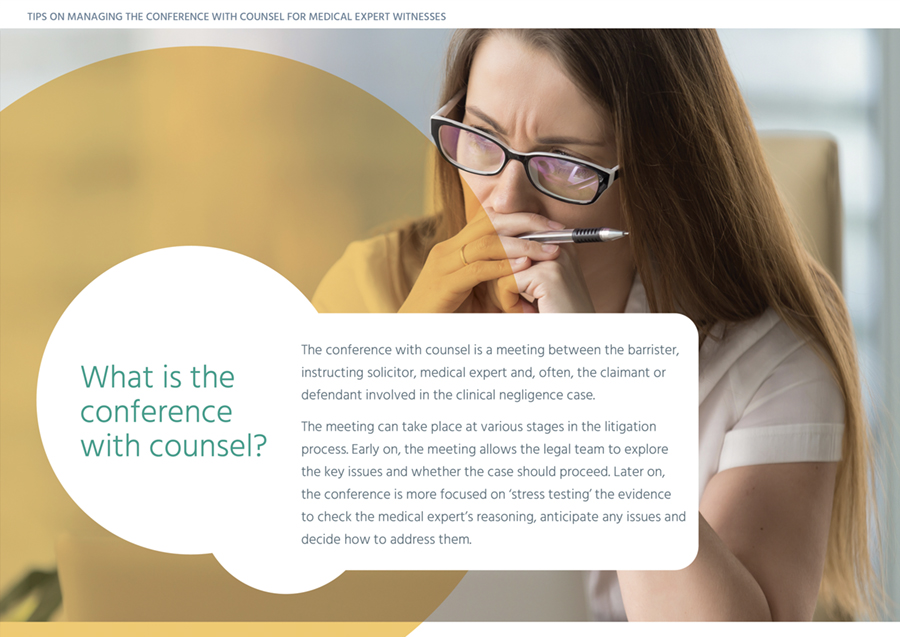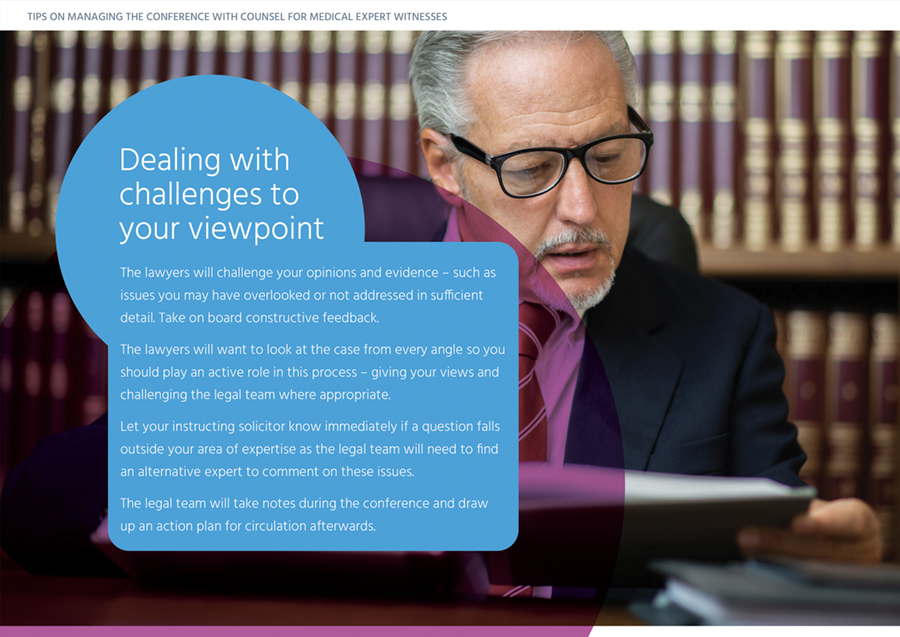Recording consultations with medical experts. Is the evidence admissible?
A recent case raised the issue of whether covert recordings of consultations with medical expert witnesses should be allowed as evidence. This was evidence obtained improperly or unfairly but nevertheless of probative value.
The clinical negligence claim
In January 2014, the claimant was injured in a road traffic accident when her stationary vehicle was struck from behind by the first defendant’s vehicle. She was aged 34 and had a complex medical history. She claimed that the accident caused her a subarachnoid brain haemorrhage and a diffuse axonal brain injury, leaving her with cognitive and other deficits. This was a subtle brain injury. The experts were divided. To some extent, these differences depended on the Court’s finding as to the speed of impact: whether it was of medium velocity (as the claimant said) or minor (as the defendant said).
Medico-legal examinations: the recordings
The claim was defended by the third defendant (hereafter ‘the defendant’). The claimant was examined by several experts instructed by the defendant. Her solicitor advised her to record the examinations on a digital device and told the defendant. In two cases, she made the recordings covertly. In the case of a neuropsychologist, Dr Torrens, she asked whether she could make the recording. Dr Torrens agreed to her recording the examination but not the testing. On her account, she tried to turn off her device but inadvertently recorded the testing. (For the purpose of this application, the judge did not challenge her account – her evidence was given only on paper.) Three other experts agreed to the recording and made their own recordings.
The claimant’s reason for making recordings was to give herself an aide-memoire of what was said and to provide evidence, if required, to demonstrate any misunderstanding of what was said. Her solicitor was also concerned that clients with subtle brain injuries might demonstrate problems with memory and fatigue. They could answer questions clumsily and their answers could be misinterpreted.
The experts who had been recorded covertly complained in strong terms and felt that the claimant’s actions were wanting in honesty, transparency and courtesy. Dr Torrens also had concerns that recording the testing breached proprietary rights in the tests by putting them in the public domain.
The application
The defendant applied for an order excluding the evidence. The claimant made an application for permission to rely on a supplementary statement from her neuropsychology expert, Professor Morris. This criticised the performance of testing by the defendant’s neuropsychologist, which, he said, rendered that evidence of doubtful value. The applications were heard by Master Davison.
The defendant produced witness evidence from Professor Gus Baker, a member of the executive committee of the British Psychological Society, who had authored draft guidelines for the recording of neuropsychological assessments. The guidelines proposed that neuropsychologists should not allow patients to make their own recordings and should discontinue assessments if they did. He and Dr Torrens both thought that, in a medico-legal context, the recording could change and distort the dynamics of the examination and, therefore, the results. They also thought that recordings could render patients ‘unassessable’ in the future.
Professor Morris responded that there was little empirical evidence of the added dynamic of recording and that it could produce potential benefits as well as potential disadvantages. He doubted it had much impact on assessment. He agreed that it could render a patient ‘unassessable’ in the future but thought this risk could be mitigated. He thought that without recording, incompetence or malpractice by a neuropsychologist might not be detected.
The Master’s decision


The conference with counsel is an important stage of the litigation process that can often make or break a case.
In our free guide, we’ll take you through the purpose of the meeting and your role as a medical expert witness. We’ll share our top tips to help you prepare for the meeting and fulfil your role effectively.
The Master sought to balance the public policy interest in excluding evidence improperly obtained against the important (but narrower) objective of achieving justice in a particular case.
He rejected an argument that the recordings were unlawful under the Data Protection Act 2018 or the General Data Protection Regulations 2016/679 (‘GDPR’). They fell outside the scope of Article 2(c) GDPR as the processing of personal data by a natural person in the course of a purely personal activity – a consultation with a doctor. Furthermore, the relevant data related to the patient and not the doctor.
The recordings were therefore not unlawful, although the covert recording was reprehensible. He accepted the explanation that the recording of Dr Torrens’ testing was inadvertent. If that were not the case, he would regard it as more reprehensible because it involved misrepresentation and subterfuge. However, the recordings were not so reprehensible as to outweigh factors that favoured their admission. The Master noted that the claimant acted on the advice of her solicitor and thought “her motives were, in the context of adversarial litigation, understandable. Whilst her actions lacked courtesy and transparency, covert recording has become a fact of professional life”.
He then turned to the factors which favoured admission of the recordings:
First, they were relevant to the issue of whether Dr Torrens has administered the tests correctly. The fact that this issue had been raised was now known. It could not now be unknown. It would be artificial for the experts to hold discussions as if ignorant of it. The genie could not be put back in the bottle.
Secondly, the extent to which covert recording had impaired or degraded the results of neuro-psychological testing was marginal. The claimant’s neuropsychology expert did not think it contributed to any significant degree. This was a question that could be resolved at trial.
Thirdly, the covert recordings of two experts were relevant to the claimant’s account of her pre-accident history, the progression of her symptoms and whether the Waddell sign from axial loading was correctly reported as positive.
The other factor to consider was whether the effect of admitting recordings of examinations by the defendant’s but not the claimant’s experts created an uneven playing field. The Master was not persuaded. He accepted her explanation as plausible that her motivation was to protect her interests in the light of her vulnerabilities and frailties (themselves a result of the accident). It was understandable that her concerns applied with particular force to the defendant’s experts rather than her own. Furthermore, no queries had been raised about the examinations of her own experts, which a recording might resolve.
The Master, therefore, took the view that the balance favoured admitting the recordings.
Comments
The issue in this application was whether the recordings should be admitted as evidence. There was no assessment of their probative value, which was a matter to be determined at trial by the trial judge.
Both the medical and legal professions need to consider how they view recording medical assessments, covertly or otherwise. The Court considered draft guidelines from the British Psychological Society suggesting that making recordings should not be acceptable, about which there was, as yet, no consensus. It considered a paper by three neurologists on the covert recording of medico-legal consultations reaching similar conclusions. That paper referenced the GMC and medical defence organisations accepting that patients can legally make covert recordings of consultations with doctors. The Master suggested that it would be helpful to have a protocol agreed between the Association of Personal Injury Lawyers and The Forum of Insurance Lawyers.
There are two considerations at issue. The first is that the evidence had been improperly obtained. Making covert recordings is not unlawful, although it is ‘reprehensible’. The second is the interests of justice in a particular case may favour not excluding evidence that is relevant and probative. This decision suggests that the balance will often favour the latter.
Read more from Paul Sankey on this case: ‘Part 35 questions for experts: lessons from a recent case’.
[1] Samantha Mustard v (1) Jamie Flower (2) Stephen Flower (3) Direct Line Insurance [2019] EWHC 2623 (QB)
[2] ‘Guidelines for the recording of Neuropsychological Assessments’
[3] Michael Gross, Len Doyal and Michael Swash, ‘The covert recording of medico-legal consultations’, Medico-Legal Journal 2018 Vol 86(4) 202-207.
